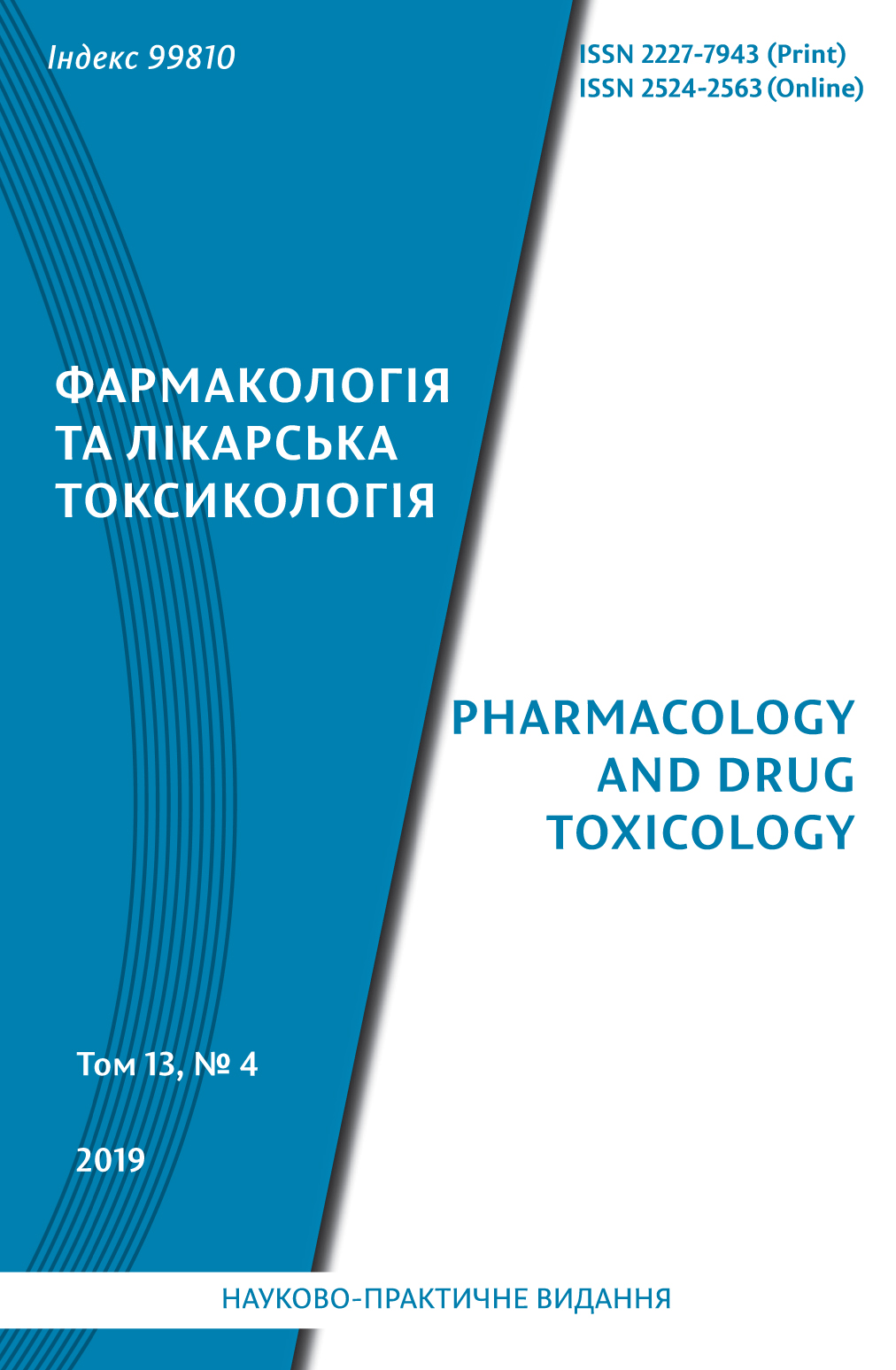Abstract
It is known that S. Officinalis has a pronounced anti-inflammatory effect, which can be compared with that of NSAIDs. It is expedient to clarify the effect of S. Officinalis extracts on the excretory function of the kidneys. The aim of the study was to investigate the effect of 11 different S. Officinalis extracts on diuresis in rats with water load. The study was performed according to the standard method of E. B. Berkhin. The studied extracts were administered intragastrically (i/g) at doses of 10, 15, 20, 50, 70 mg/kg (extracts № 1, 2 and 3) and 10, 20, 50, 70 mg/kg (extracts № 4, 5, 6, 7, 8, 9, 10 and 11). Comparison drugs – furosemide
(10 mg/kg, i/g), hydrochlorothiazide (50 mg/kg, i/g), Adiurekrin (2 units, subcutaneous). White non-linear rats were divided into groups of 6 animals. Diuresis was recorded 2 and 4 hours after the water load. According to the results of the study, it was found that 10 out of 11 extracts of S. Officinalis show antidiuretic properties. The studied extracts statistically significantly reduced the volume of urine excreted by 15,7–58,3 % compared with the rate of control animals (p < 0,05). For extracts № 1, 2, 3, 6, 8, 9, 10, and 11, an inverse dose-dependent effect was established, that is, when the dose was reduced (to 10– 20 mg/kg), the antidiuretic effect was enhanced. In contrast to these extracts, extracts № 4 and 5 showed antidiuretic activity in the entire range of doses studied (10–70 mg/kg). Extract № 7 in one of the studied doses did not have an antidiuretic effect. Considering the fact that phenolic compounds, in particular, hydroxycinnamic acids, are the main component of S. Officinalis extracts, it has been suggested that the antidiuretic effect of extracts is based on their ability to reduce prostaglandin synthesis. The amino acids L-lysine and L-arginine in this case showed a potentiating effect.

